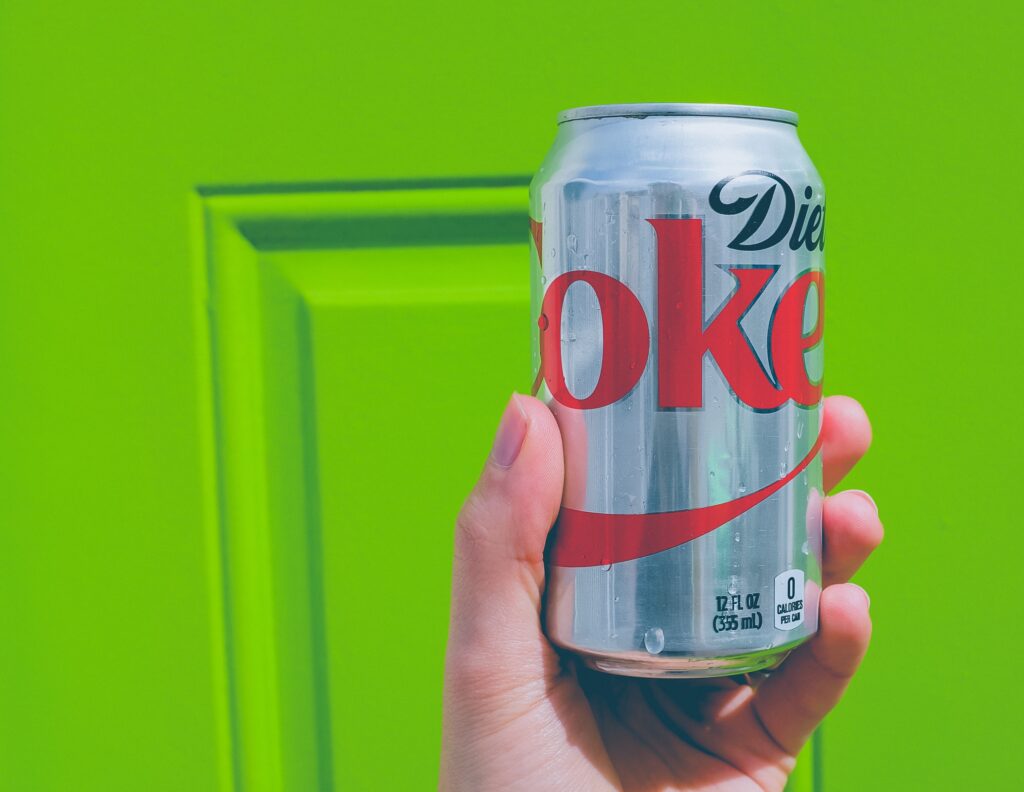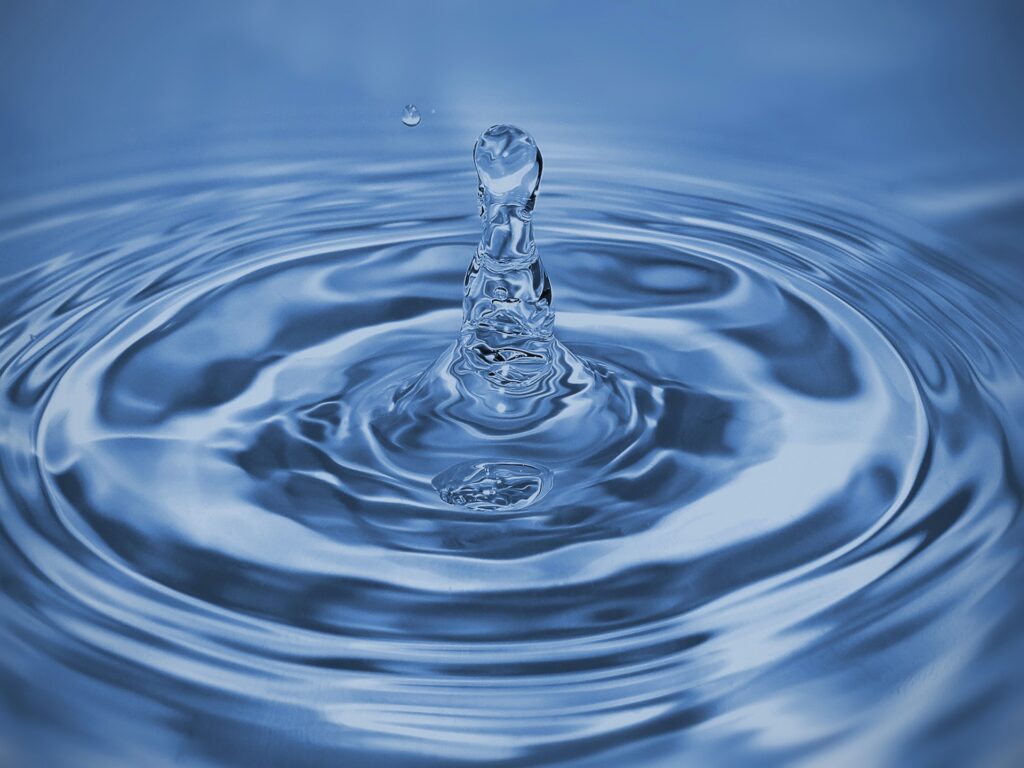In a world filled with choices, even the simplest ones can have a significant impact. One such choice that often goes unnoticed is what we decide to drink. The decision to opt for water over soda can actually have more beefits than you think…from greater potential for environmental sustainability as well as your own personal health outcomes. Saying that though is sometimes easier said than done and in the depths of my own daily routine, I found myself entangled in a seemingly innocuous addiction: Diet Coke. What had started as an occasional indulgence soon evolved into a full-fledged habit, one that I couldn’t imagine my day without. The fizzy, caffeinated elixir had a firm grip on my life, and it took more than a moment of self-reflection and a deep desire for change to break free from its clutches. This is the story of my journey to liberation, my battle with Diet Coke addiction, and how I emerged on the other side, proudly chemical-free, and on the path to a healthier, more vibrant life.
Why Bother Changing?
So at my 1 can every day or so habbit, I was reasonably ok with my ‘socially acceptable addiction’. It really wasn’t so bad was it? But then, when I started getting up to 5-6 cans per day (and I realised that my can recycling bin was going back every month rather than 6 monthly, and I found myself twitching in the morning if I didn’t have a can of dietcoke with breakfast) that the cost to the planet and my own health was too high.
Cost to The Environment
Increased Plastic Waste – One of the most visible and pressing environmental issues today is plastic pollution. Soda consumption significantly contributes to this problem, as most sodas come in plastic bottles or aluminum cans. By choosing water instead, you reduce your personal plastic waste footprint, helping to mitigate the environmental damage caused by single-use plastics.
Increased Energy Usage – The production and distribution of soda drinks are energy-intensive processes. Manufacturing the bottles, filling them, and transporting them to stores require vast amounts of energy. Opting for tap water or filtered water at home is a more energy-efficient choice, as it eliminates the need for the energy-intensive soda production and transportation processes.
Resource Conservation – The production of soda drinks relies on vast quantities of water, often sourced from local communities. This high water demand can strain local water resources, especially in areas already facing water scarcity. Opting for water helps conserve this precious resource and ensures equitable access to clean water for all.
Cost to Your Health
The decision to quit soda goes far beyond its environmental benefits; it has profound implications for your personal health and well-being. Soda, often laden with sugars, artificial additives, and empty calories, is a major contributor to a range of health problems. Here’s why quitting soda is crucial for your health:
Sugar Overload and Obesity
Soda is a major source of added sugars in the diet. A single can of soda can contain up to 39 grams of sugar, which exceeds the daily recommended intake for most individuals. Regular consumption of sugary drinks can lead to weight gain and obesity. The excess sugar is converted into fat in the body, increasing the risk of developing obesity-related conditions such as type 2 diabetes, heart disease, and certain cancers.
Tooth Decay and Dental Problems
The high sugar content in soda is a significant contributor to tooth decay and dental problems. The combination of sugars and acids in soda erode tooth enamel, leading to cavities and gum disease. Quitting soda can improve oral health, reducing the need for costly dental treatments.
Risk of Type 2 Diabetes
Regular consumption of sugary beverages like soda is associated with an increased risk of type 2 diabetes. The excessive sugar intake can lead to insulin resistance, where the body’s cells no longer respond effectively to insulin. This condition can progress to diabetes, a chronic and potentially life-threatening disease.
Increased Heart Disease Risk
Soda consumption has been linked to an elevated risk of heart disease. High sugar intake can raise blood pressure, promote inflammation, and contribute to the development of atherosclerosis (the buildup of fatty deposits in arteries). All of these factors increase the likelihood of heart attacks and strokes.
Bone Health Concerns
Soda contains phosphoric acid, which can interfere with calcium absorption in the body. Over time, excessive soda consumption may contribute to reduced bone density and an increased risk of osteoporosis, particularly in individuals with poor dietary calcium intake.
Risk of Fatty Liver Disease
The fructose content in many sugary drinks, including soda, can contribute to the development of non-alcoholic fatty liver disease (NAFLD). NAFLD is characterized by the accumulation of fat in the liver and can progress to more severe liver conditions if left untreated.
Increased Cancer Risk
Certain caramel colorings used in colas and other sodas have been associated with the formation of potentially carcinogenic compounds when exposed to high temperatures. While the risk may be relatively low, it’s an additional concern associated with soda consumption.
Impact on Mental Health
There is growing evidence that a diet high in sugar, including sugary drinks like soda, may have negative effects on mental health. Excessive sugar intake has been linked to an increased risk of depression and mood disorders.
Better Hydration
Quitting soda in favor of water improves hydration. Proper hydration is essential for overall health, as it supports bodily functions such as digestion, circulation, and temperature regulation. Water is also calorie-free and does not contribute to weight gain.
Improved Long-Term Health
By quitting soda and reducing sugar intake, you pave the way for improved long-term health. You lower your risk of chronic diseases, enhance your overall well-being, and increase your chances of enjoying a longer, healthier life.
So, how do you actually do it though? I mean…It’s actually an addiction, right? Here are some tips and tricks to help you make the switch:
1. Gradual Reduction: If you’re a regular soda drinker, quitting cold turkey might be challenging. Instead, start by gradually reducing your soda intake. For example, if you typically have two sodas a day, cut down to one for a week, then one every other day, and so on until you’ve significantly reduced your consumption.
2. Set Clear Goals: Define your goals for reducing soda consumption. Whether it’s to improve your health, save money, or reduce your environmental footprint, having a clear motivation can keep you focused.
3. Hydration Tracker: Use a water bottle or hydration app to track your daily water intake. Many people find that setting a specific water consumption goal for the day (e.g., eight glasses or 2 liters) helps them stay on track.
4. Flavor Infusion: If plain water seems boring, infuse it with natural flavors. Add slices of lemon, lime, cucumber, or berries to your water for a refreshing twist. Herbal teas or sparkling water with a splash of citrus can also be appealing alternatives.
5. Substitute with Healthier Options: Replace soda with healthier beverage options, such as herbal tea, unsweetened iced tea, or sparkling water. These can provide variety while reducing your soda cravings.
6. Mindful Consumption: Pay attention to when and why you crave soda. Is it out of habit, stress, or thirst? Identifying the triggers can help you find healthier alternatives or address underlying issues.
7. Plan Ahead: When dining out or ordering takeout, choose water or other non-soda options in advance. Knowing your choice ahead of time makes it easier to resist the temptation.
8. Keep Healthy Snacks Nearby: Sometimes the urge for soda arises from a desire for a quick energy boost. Instead of reaching for a soda, keep healthy snacks like nuts, fruit, or granola bars nearby to satisfy your hunger and energy needs.
9. Stay Accountable: Share your goals with a friend or family member who can help keep you accountable. Having someone to encourage your progress can be motivating.
10. Set Rewards: Create a reward system for yourself as you make progress in reducing soda intake. When you reach certain milestones, treat yourself to something special that isn’t related to food or beverages.
11. Educate Yourself: Learn about the negative health effects of soda consumption, including the impact on weight gain, tooth decay, and chronic diseases. Understanding the risks can strengthen your resolve to quit.
12. Practice Moderation: If you occasionally enjoy soda, it’s okay. The key is moderation. Allow yourself a treat once in a while, but avoid making it a daily habit.
13. Support Groups: Consider joining support groups or online communities where people share their experiences and strategies for reducing soda consumption. You can learn from others and gain inspiration from their success stories.
14. Professional Guidance: If you find it extremely challenging to quit soda or believe you have a strong addiction to it, consider seeking professional guidance from a nutritionist or counselor who specializes in addiction.
Remember that making the switch to water is a journey, and it’s okay to have occasional setbacks. The most important thing is to stay committed to your goal of reducing soda consumption for the sake of your health and well-being. Over time, your taste preferences will adapt, and you’ll likely find yourself enjoying the refreshing simplicity of water.



